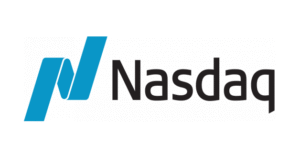- Best Buy Co., Inc. (NYSE:BBY) reported an EPS of $1.15, beating the estimated $1.09.
- The company’s revenue of $8.77 billion fell short of the estimated $8.82 billion.
- Best Buy’s stock experienced a 2.3% decline in premarket trading following the earnings report.
Best Buy Co., Inc. (NYSE:BBY), a leading electronics retailer in the United States, is known for offering a wide range of consumer electronics, appliances, and related services. Competing with other major retailers like Amazon and Walmart, Best Buy showcased its ability to exceed market expectations on May 29, 2025, by reporting earnings per share (EPS) of $1.15, surpassing the estimated $1.09.
Despite the positive EPS, Best Buy’s revenue of approximately $8.77 billion fell short of the estimated $8.82 billion. This slight miss in revenue highlights the challenges the company faces in maintaining its sales momentum. As highlighted by Investopedia, the fiscal 2026 first-quarter financial results showed a decline in both domestic and international comparable sales compared to the previous year.
Following the earnings report, Best Buy’s stock experienced a 2.3% decline in premarket trading. This drop was primarily due to the company’s decision to lower its full-year profit guidance, citing the impact of tariffs. As highlighted by Market Watch, this adjustment raised concerns among investors, contributing to the decrease in stock value.
Best Buy’s financial metrics provide further insight into its market position. The company has a price-to-earnings (P/E) ratio of approximately 16.48, indicating how the market values its earnings. The price-to-sales ratio is about 0.36, suggesting the amount investors are willing to pay per dollar of sales. Additionally, the enterprise value to sales ratio stands at around 0.42, reflecting the company’s total valuation relative to its sales.
The company’s enterprise value to operating cash flow ratio is approximately 8.40, offering insight into its cash flow generation relative to its valuation. Best Buy’s earnings yield is about 6.07%, providing a perspective on the return on investment. The debt-to-equity ratio is 1.44, indicating the proportion of debt used to finance its assets relative to shareholders’ equity. Lastly, the current ratio of approximately 1.03 suggests Best Buy’s ability to cover its short-term liabilities with its short-term assets.




